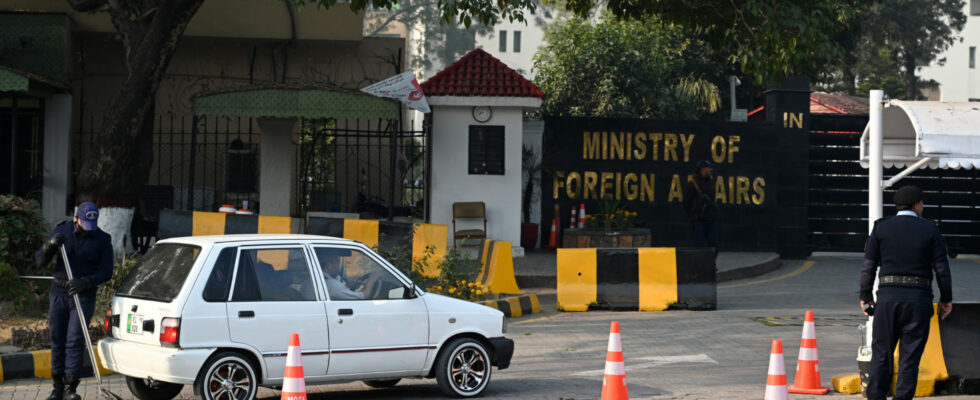Two days after an Iranian attack on its territory, Pakistan announced this Thursday that it had carried out “strikes against terrorist hideouts” in Iran during the night, which left nine people dead according to Iranian public television. Pakistan, the only Muslim country with nuclear weapons, and Iran have both faced smoldering insurgencies along their shared border for decades.
Context of strong regional tensions
These reciprocal attacks come at a time when the Middle East is shaken by the war between the Palestinian Islamist movement Hamas and Israel in the Gaza Strip and attacks by Yemen’s Houthi rebels, supported by Iran, against commercial ships. in the Red Sea. “This morning, Pakistan carried out a series of precision, highly coordinated and specifically targeted strikes against terrorist hideouts in the province of Sistan-Baluchistan”, in the south-east of Iran, announced in a press release the Pakistani Ministry of Foreign Affairs.
“The measure (…) was taken in view of credible intelligence on imminent terrorist activities on a large scale,” he justified, affirming that a “certain number of terrorists” had been killed. Iranian state television reported that three women and four children were killed in a village near the town of Saravan, Sistan-Baluchestan. Iranian state media cited a “informed official” as saying Iran was demanding “an immediate explanation from Pakistani authorities.”
Iran and Pakistan frequently accuse each other of allowing rebel groups to operate from each other’s territories to launch attacks, but it is rare for either country’s forces to be involved.
“National interest”
“Pakistan fully respects the sovereignty and territorial integrity of the Islamic Republic of Iran,” assured the Pakistani Foreign Ministry. “The sole objective of today’s (Thursday) action was to work for the security of Pakistan and our national interest, which are paramount and cannot be compromised,” he added. China, which maintains privileged ties with Islamabad and Tehran, said on Thursday it was ready “to play a constructive role to calm the situation”.
Tehran carried out an airstrike on Tuesday evening against “terrorist targets” in Pakistan. Islamabad on Wednesday deemed this attack, which caused the death of two children, “totally unacceptable” and unjustified. According to Pakistani media, it occurred near Panjgur, in the southwest of Baluchistan province (West), where Pakistan and Iran share a border of a thousand kilometers.
Balochistan, Pakistan’s largest, least populated and poorest province, which borders Iran and Afghanistan, has been rocked intermittently for decades by a separatist rebellion. The province is rich in hydrocarbons and minerals, but its population complains of being marginalized and robbed of its natural resources. In response, Pakistan recalled its ambassador to Iran and decided to prevent the return of the Iranian ambassador, who is currently in his country.
“By missile and drone”
The interim Prime Minister of Pakistan, Anwar-ul-Haq Kakar, will shorten his trip to the Davos Forum (Switzerland) “in view of current developments”, the spokesperson for the Pakistani Ministry of Affairs announced Thursday at a press conference foreigners, Mumtaz Zahra Baloch. The Iranian attack “by missile and drone” targeted the headquarters in Pakistan of the jihadist group Jaish al-Adl (Army of Justice in Arabic), in response to an “aggression against security” by Iran, according to the Iranian Mehr news agency.
Jaish al-Adl, formed in 2012, has carried out several attacks on Iranian soil in recent years. The group is considered a “terrorist organization” by the United States. In December, Jaish-al-Adl claimed responsibility for an attack on a police station in Rask in Sistan-Baluchistan, in which 11 Iranian police officers were killed. Iranian Foreign Minister Hossein Amir-Abdollahian insisted on Wednesday that “Jaish al-Adl is a terrorist group that acts against the common security of the two countries.”
On Tuesday, Iran also launched missile attacks on what it called “spy” headquarters and “terrorist” targets in Syria and autonomous Iraqi Kurdistan. The United States condemned the Iranian strikes, with State Department spokesperson Matthew Miller denouncing the fact that Tehran had “violated the sovereign borders of its neighbors over the past few days.”
